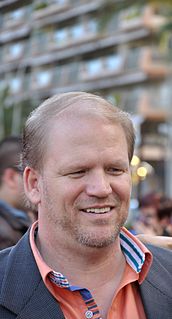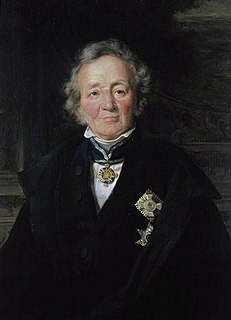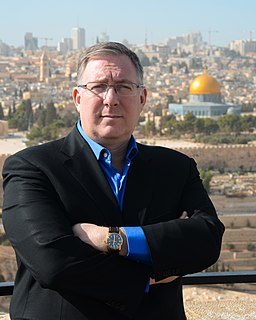A Quote by Curtis Sittenfeld
For 'Gender Studies,' I wrote that story in May and June of 2016. People have said to me, 'Oh, it's a political allegory,' and I think, 'Sure.' The political stuff is definitely there. But that's why I like fiction; there can be lots of different things going on, and it's all intertwined, and you can't separate out what's in what category.
Related Quotes
Science fiction is a weird category, because it's the only area of fiction I can think of where the story is not of primary importance. Science fiction tends to be more about the science, or the invention of the fantasy world, or the political allegory. When I left science fiction, I said "They're more interested in planets, and I'm interested in people."
I've written one book-length piece of journalism. The Art of Political Murder: Who Killed Bishop Gerardi? That book had an impact. Eight years after it was published it's still having an impact in Guatemala. I remember when I wrote it, a surprising number of people said things to me like, "That is such an amazing story; why didn't you turn it into a novel?"
I also think one of the things that's really hurting us is political activism of any stripe. Michael Jordan had it exactly right, he was my idol - when he was asked about a political question at one point and he said I'm not going to answer it, and they said why not, and he said: Because Republicans buy gym shoes too, right? That doesn't exist anymore, that kind of smarts.
For example, if you are a blogger who wrote something about a local official and you're going to prison for that, you're a political prisoner. If you're a businessman who has refused to cede his business to the local official and you're going to prison for that, you're not a political prisoner. In that second category there are hundreds of thousands of people in Russia.
I never write something and consciously embed political commentary or any other kind of commentary. I just try to get the characters into a room or out of a room, or onto the plane, or through the grocery store. The political stuff, the class stuff, the gender stuff, is in the air, it's in their interactions, because it's there for all of us.
I certainly do believe that a lot of comedy comes from awkwardness and embarrassment - pointing out the ways things are uncomfortable. Definitely the stuff that interests me. I don't necessarily think that comedy comes from a dark place, like you have to be a strung-out heroin addict. But I don't think it comes from happiness, that's for sure. It comes from frustration and suppressed rage, and wishing the world were different.
"I don't know," I said. "What else did you do for your first eighteen years?" "Like I said," he said as I unlocked the car, "I'm not so sure that you should go by my example." "Why not?" "Because I have my regrets," he said. "Also, I'm a guy. And guys do different stuff." "Like ride bikes?" I said. "No," he replied. "Like have food fights. And break stuff. And set off firecrackers on people's front porches. And..." "Girls can't set off firecrackers on people's front porches?" "They can," he said... "But they're smart enough not to. That's the difference."
People say to me, Oh, it's so wonderful that you're writing about real things, and that it's a political thing to do, and I say, look-to be in my position and not say anything is a hell of a political thing. You need to think politically, otherwise you'll be one of these people who says, Oh, this person's saying this and that person's saying that, and I'm confused. And I say, yeah, because you want to be confused.
I think when people try to use their art for political views, I think they're art becomes smaller, less interesting. And so for me, as an artist, I'm trying to speak about things in a universal way and not be pedantic or small-minded and try to convince other people of my political views. But having said that, every day I live in sort of complete terror because of what I read in the newspaper and what is going on in the world. I'm constantly, as I think many of us are, overwhelmed by the sort of, mass psychosis that's occurring.
Now, I'm a failed political consultant. But sometimes fiction has a way of capturing people's imagination in a way that non-fiction doesn't. Conservatives typically haven't written much fiction - specifically political thrillers - over the years to educate, inspire and mobilize people on issues of great import, but we ought to.
I think it's hard sometimes for people to grapple with the real-life consequences of political change. I think that, we as a culture, feel like politics is one sector of our lives that can feel apart from our personal lives and the cultural things we're interested in and the sports we watch. It feels like this separate, different thing.





































